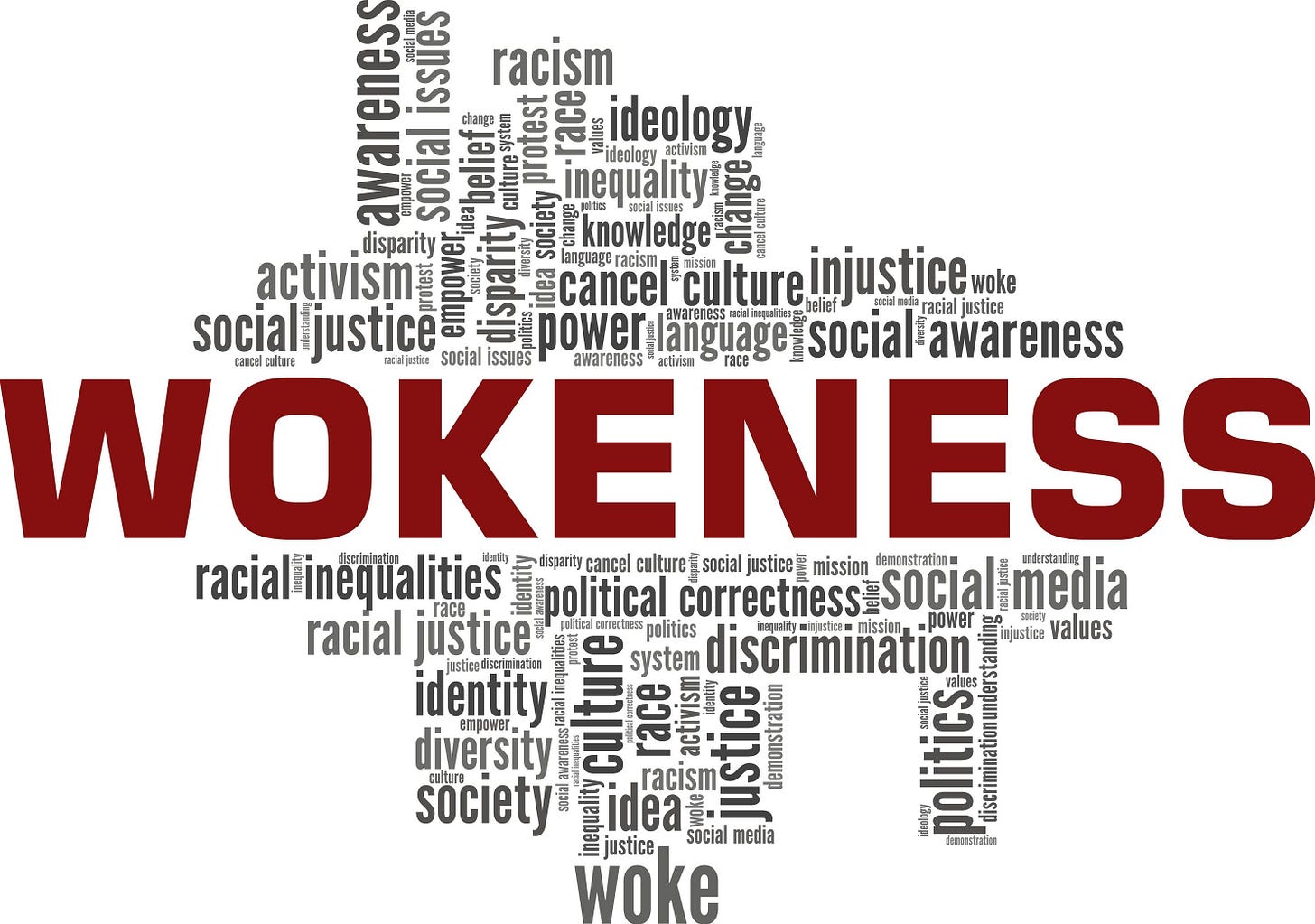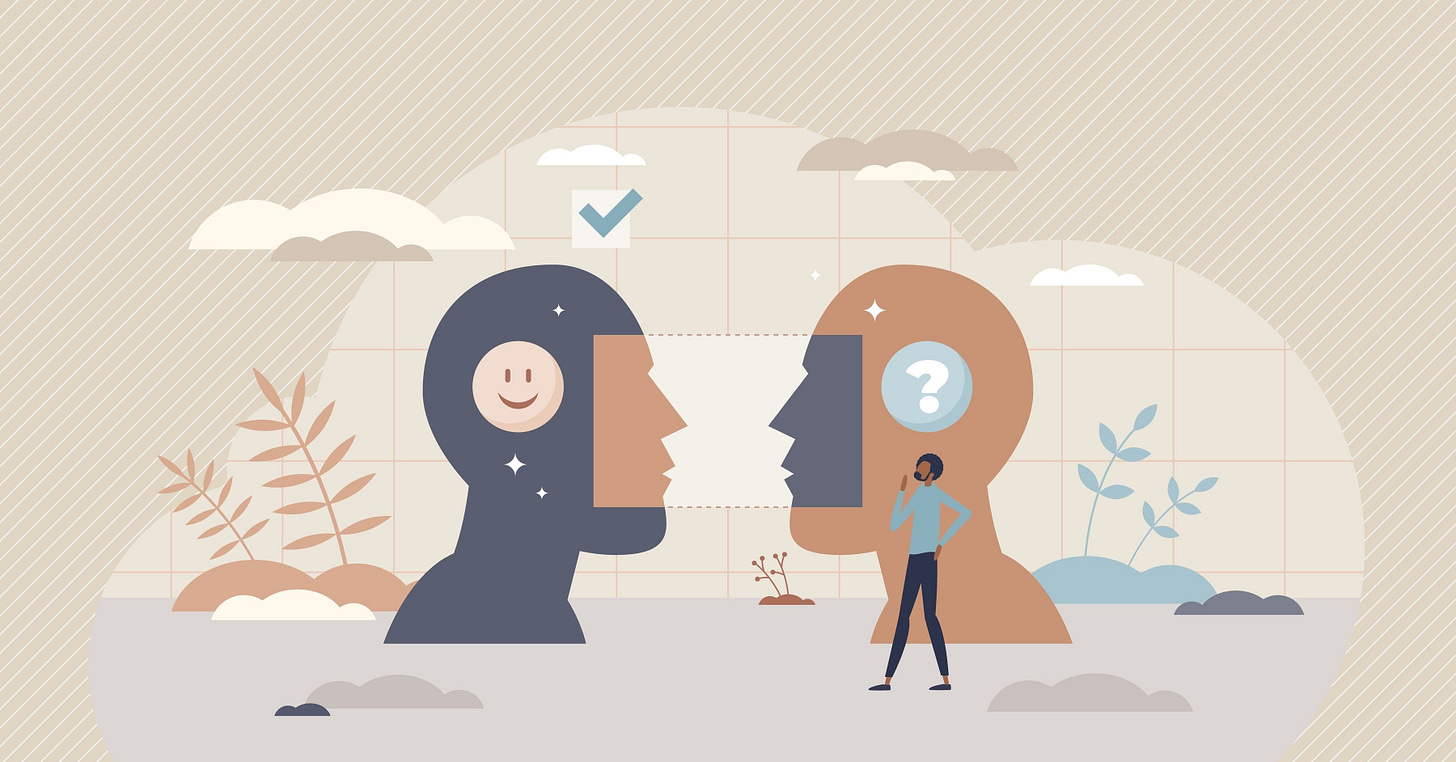E-Pluribus | February 23, 2023
Playing dumb on "woke"; we're *not* all just racists; and separating art from the artist.
A round-up of the latest and best writing and musings on the rise of illiberalism in the public discourse:
Noah Rothman: No One Is Confused by ‘Wokeness’ in Practice
Fresh off his move to National Review, Noah Rothman debunks the notion that everyone talks about “wokeness” but no one really knows what it means. Rothman alleges that muddying the wokeism waters is actually a tactic of those espousing its principles to gain an advantage over those who dare to push back.
In particular, Parker and Goodwin cite the findings of a focus group of Florida voters published in the Bulwark who “either had no clue what ‘woke’ means or completely disagreed with each other on the term’s meaning.” That’s understandable. The policy dimensions around “wokeism” are generally indistinct from those associated with the concept of social justice, which also has no universal definition despite the efforts of generations of scholars, theologians, and policy-makers who dedicated their lives to its pursuit.
In the Rawlsian thought experiment, the pursuit of social justice obliges enlightened institutions to redistribute both economic and social goods up to the point at which, according to John Rawls, “a decrease in [the more fortunate’s] advantages would make the least fortunate even worse off than they are.” The American sociologist Carl Bankston later critiqued the “activists, social workers, and policymakers” who “may have absorbed only secondhand versions of Rawls.” They therefore see “people as positions rather than as individuals,” which “implicitly reduces them to categories.” As working definitions of “wokeism” go, it’s hard to do much better.
Adherents to this philosophical outlook benefit from the ambiguity around it, which helps explain why they heap condescension on those who seek to clear up the confusion they’ve cultivated. The vagueness of their proposition allows them to pretend as though their critics are simply ignorant. Their doctrine is both infinitely complex and intuitive — a conception of justice that a child can understand, but that only enlightened distributors operating from within remote institutions can seek.
Read the whole thing.
Marilyn Singleton: I’m A Black Physician, And I’m Appalled by Mandated Implicit Bias Training
To hear some tell it, racism is the water all of us fish are swimming in so we aren’t even conscious of it anymore. Marilyn Singleton, a Black physician who came of age in the 1970s, says in the Washington Post that today’s “implicit bias training” is turning back the clock and making progress on racial relations all that more difficult.
When I graduated with a medical degree in 1973, a Black woman in a class of mostly White men, there was a real sense that the days of obsessing over skin color and making race-based assumptions about our fellow human beings was finally fading — and, hopefully, soon gone for good.
Apparently not. That racial obsession has come rushing back — in academia, politics, business and even in my beloved medical profession. But now it’s coming from the opposite direction. The malignant false assumption that Black people are inherently inferior intellectually has been traded in for the malignant false assumption that White people are inherently racist.
That is the basic message conveyed by “implicit bias training,” which is now mandatory for California physicians; it is a message that I believe is harmful both to physicians and patients. There is a sad irony in all this, because the misguided focus on racism is intended to improve the health and well-being of Black patients in particular.
The law, which took effect last year, includes other bias targets, including gender identity, age and disability. But in practice, such training — a mainstay of the diversity and inclusion industry, worth an estimated $3.4 billion in 2020 — is overwhelmingly about race.
Read it all.
Iona Italia: Roald Dahl and the Ethics of Art
In coming new editions of Roald Dahl’s works, the publishers are sanding off the author’s rough edges that, the story goes, make his writing unsuitable for modern audiences. Iona Italia at Quillette writes that an author’s work should be evaluated and appreciated apart from the author’s character or style.
The priggish redaction of literary works has a long history, dating back at least to Henrietta and Thomas Bowdler’s 1807 The Family Shakespeare, which excised around 10 percent of the original text to avoid “profaneness and obscenity” ranging from Ophelia’s suicide to Mercutio’s remark that “the bawdy hand of the dial is now upon the prick of noon.” The hero of Byron’s Don Juan (1819) reads the Classics in bowdlerised editions, which separate all the rude parts of Catullus and Martial into an appendix—which, the poet points out, just makes them easier to find and “saves, in fact, the trouble of an index.” Dahl himself toned down some of his novels in response to criticism. The Oompa-Loompas of Charlie and the Chocolate Factory (1964) were originally pygmies from “the deepest and darkest part of the African jungle.” In response to protests, the author turned them into fantastical pale-skinned beings.
Dahl is an easy target for censors: a rabid antisemite, often unapologetically crass and with an obsession with the sinister and revolting. Yet here, as always, the urge to censor is based on a profound misunderstanding of the nature of literature and of what makes it valuable.The urge to censor the work of wicked people is natural to those whose worldview includes the conviction that people are representatives of their groups, and that society is full of power struggles between groups—white and non-white; Western and Eastern; cis and trans; men and women. The relationship between writer and reader or painter and viewer is just one more struggle for dominance, and if the artist is or was an immoral person, we should therefore not allow their work to be celebrated because that would allow them to win.
Read it all here.
Around Twitter
Here’s author and psychologist Adam Grant on how to listen:
Via the Foundation for Individual Rights & Expression, some thoughts on how to present literature of another era to children, and it’s not by modernizing it:
And finally, Wesley Yang on why there’s no “T” in DEI:









